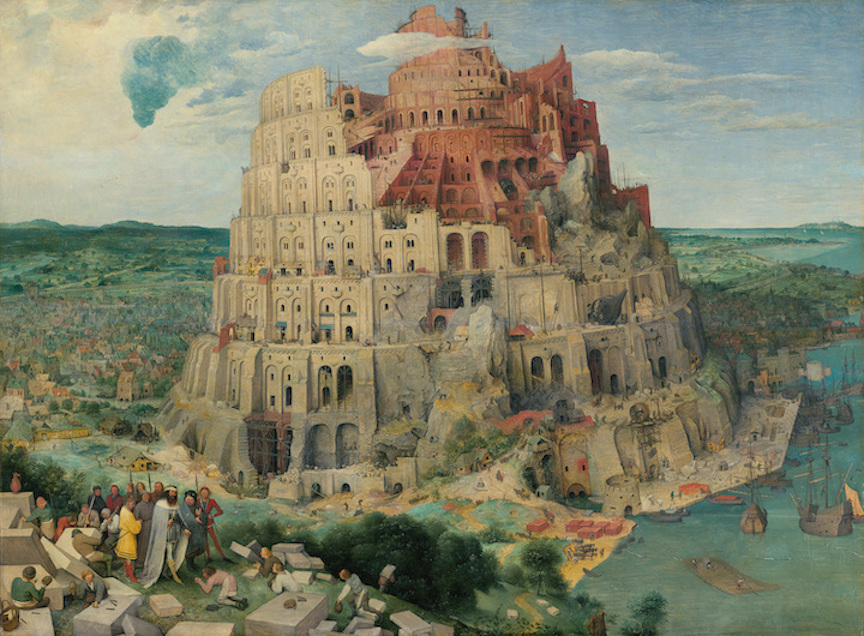I was asked recently to read the North American “Final Document” for the “Synod on Synodality” and offer my opinion. I am the kind of theological nerd who loves papal encyclicals, but it was pure misery slogging through the “Final Document.” It’s not something written to inspire the hearts and minds of the faithful, but a bureaucratic product about “process.”
To say the document was “empty” would be an insult to emptiness. You open a box, find it empty, and that’s that. You haven’t wasted much time. With this document, you keep wondering, “When is it going to say something?” But it never does. It’s like being lured further into the desert by a mirage of water you never find.
Someone asked what I thought of the theology of the document. That’s like asking what I think of the current king of France. There is no “current king of France” and so, too, there is no theology in the “Final Document.” The Trinity never makes an appearance. The word “Christ” shows up a few times but never with any account of why He is important. And it’s difficult to judge the “theology” of a church document that lacks even a single reference to Scripture, tradition, or the Magisterium.
The authors say we should be “on mission,” but never clarify what the mission is for or what Christians have to offer that would make others want to be part of the Church – especially a Church that produces a document this vague and lifeless.
C.S. Lewis once wrote about friendship that people who have a shared interest or goal become friends. People who set out to “have friends” rarely find them because they lack a shared goal. Two people who love Christ can be friends. Two people devoted to “synodality” will soon drift apart.
The document calls for “co-responsibility” and for the laity to “use their gifts in service to the Church.” This is to ignore the fact that they already do – in their families, businesses, and neighborhoods, duties that leave little time to involve themselves in “the synodal process.” The document seems to presuppose that nothing other than involvement in Church governance matters. More troubling is the prospect that this bureaucratic process of constant meetings will continue interminably. Isn’t that a punishment in Dante’s hell?
The document’s repeated claims that participants were revivified and renewed by the synodal process is not exactly convincing. “Synodality is an adventure,” they say. I think they must have a different definition of “adventure” than I do. The document calls for more “formation” – not in Christian faith or spirituality, but in synodality! (I’m not making this up.) So, we are to have more formation on how to have more committee meetings? Oh boy, I’m excited.

“The North American Synod Team” says they “heard through the synodal consultations that our people are asking for more robust formation” in synodality and in going out to those on the “margins” of society. It’s odd because I am hearing different voices: from people who want to know how to raise their families; how to live in a society that is increasingly antagonistic toward them; how to ensure their children are getting a good education and formation in the faith.
The last thing they want to deal with is Church bureaucracy. They want that part of their lives to just be there for them so they can focus on other things. What to do with a sick elderly parent? How to take care of a disabled child who their Catholic schools won’t take? How to deal with children poisoned by the toxic culture? The document fails to touch on any of these concerns.
The document calls for greater “transparency” in the Church, apparently oblivious to the fact that they can’t even be transparent about the synodal process itself. The authors admit that “many bishops expressed the same kinds of uncertainties and ambiguities about ‘where all of this is going’ that many participants at all levels of the consultative process mentioned. . . .What are the next steps? Where do we go from here?” We are never told. Transparency indeed!
“Listening” is only meaningful if there is evidence that people have been heard, and that only happens if you reply to people’s questions and concerns meaningfully. This is not happening. And when there is no real transparency and no real evidence of concerns being addressed, people suspect that the “listening” is a pose, not a reality.
It’s difficult to have confidence in a “process” so divorced from any substance, so unclear on its goals, its theological grounding, its basic terms (synodality, inclusion, co-responsibility), and above all, its continuity with the Gospel message about the death and resurrection of Christ as an expression of God’s saving love.
This synodality “Final Document” is like a university mission statement lacking any substantive vision of educational excellence. Without that substance, such a document provides neither meaningful guidance nor the means to restrain administrative misbehavior. They usually serve as an all-purpose cloak of legitimacy for whatever the administration chooses to do.
Then when the next administration arrives, they act as though the earlier document never existed and send everyone off to create a new one – one that will be similarly ignored and cast aside. I’ve wasted too much of my life in the university process to put much faith in this one.
The “Final Document” repeatedly congratulates itself for a wonderful “process” and claims participants were revivified and filled with hope. If so, none of that amazing energy made it into their prose. If what the Church needs now is a document to evangelize and inspire the hearts and minds of the next generation, this is not it. The document talks about “outreach to the young,” but I can’t imagine the amazing young people I teach tolerating more than a page.
Nor would I blame them. The Boomers need to wake up and realize it’s not 1972 anymore.
__________















